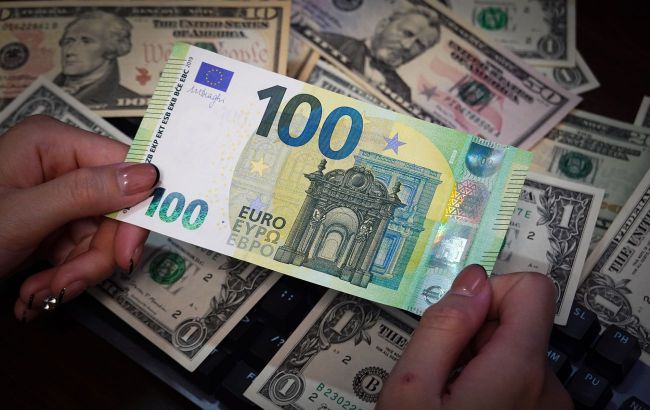Ukraine will get Russian reparations as EU 'loan' starting in 2026 – Bloomberg
 Photo: Ukraine will get Russian reparations as EU 'loan' starting in 2026 (Getty Images)
Photo: Ukraine will get Russian reparations as EU 'loan' starting in 2026 (Getty Images)
On September 26, European Union ambassadors will begin discussions on a plan to provide Ukraine with €140 billion in loans from frozen assets of the Russian Central Bank, reports Bloomberg.
According to the draft document, the funds will come from approximately €180 billion held in Euroclear accounts.
The money will be gradually transferred to the EU, which will enable it to issue loans to Kyiv. The EU will conclude a zero-interest debt agreement with Euroclear so that the clearing house can fulfill any future obligations to Russia.
Terms of repayment
Ukraine will be obliged to repay the EU only if Moscow agrees to finance the country's recovery and pay reparations, or if sanctions against Russia are lifted.
In theory, this means that the aid will not increase Ukraine's national debt and will not be considered a direct seizure of Russian assets.
The EU has repeatedly stressed that the assets will remain frozen until Russia compensates Ukraine for the damage caused by the war. The operation will be guaranteed by the member states of the union.
Support from allies
The discussions are taking place against the backdrop of growing support from Kyiv's allies for the idea of using Russia's frozen assets. German Chancellor Friedrich Merz expressed his full support for the plan yesterday.
The G7 countries are also discussing a joint approach to using assets to increase pressure on Russia. They are considering sanctions against the energy sector and third-country networks that help Moscow trade oil.
Previous initiatives
The EU has previously agreed to provide Ukraine with €45 billion in loans as part of a G7 initiative based on profits from Russian assets. These loans will remain in place, and the new plan provides for an additional €140 billion.
The decision is to be approved by the EU summit in Copenhagen next week. However, Belgium, where the assets are concentrated, is opposed.
Belgium's opposition
“Taking Putin’s money and leaving us with the risks. That’s not going to happen,” said Belgian Prime Minister Bart De Wever.
Yet, the EU proposal does not provide for the direct confiscation of assets. A qualified majority of member states may be sufficient to launch the scheme, rather than a unanimous decision, as is the case with sanctions.
The bloc hopes to launch the mechanism by the end of the year and start issuing funds to Ukraine as early as 2026.
Ukraine's budget deficit
Earlier, the Financial Times reported that the European Union is preparing a scheme of reparations loans for Ukraine for €170 billion. They want to base it on frozen Russian assets in Euroclear.
The Cabinet of Ministers of Ukraine forecasts financing the 2026 state budget deficit with $44 billion in international aid. The sources for $18 billion of this amount have not yet been determined.
According to the First Deputy Governor of the NBU, Sergiy Nikolaychuk, the most likely source will be funds from European partners.

